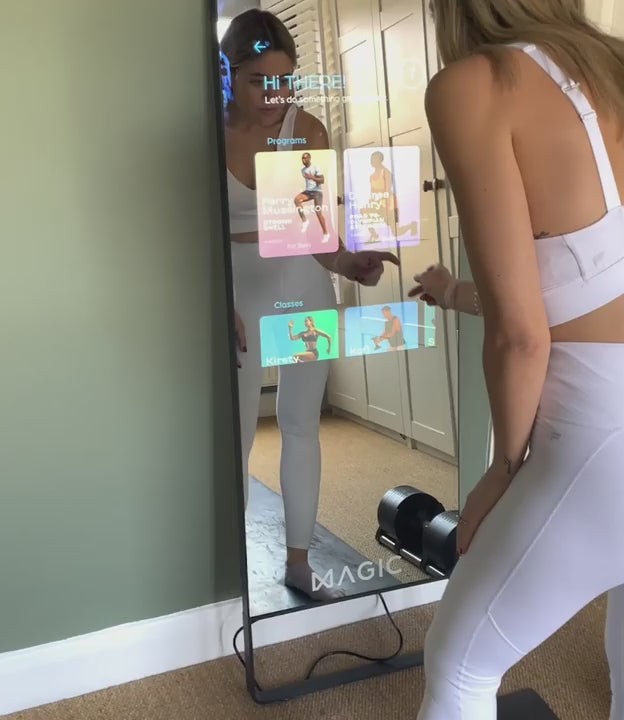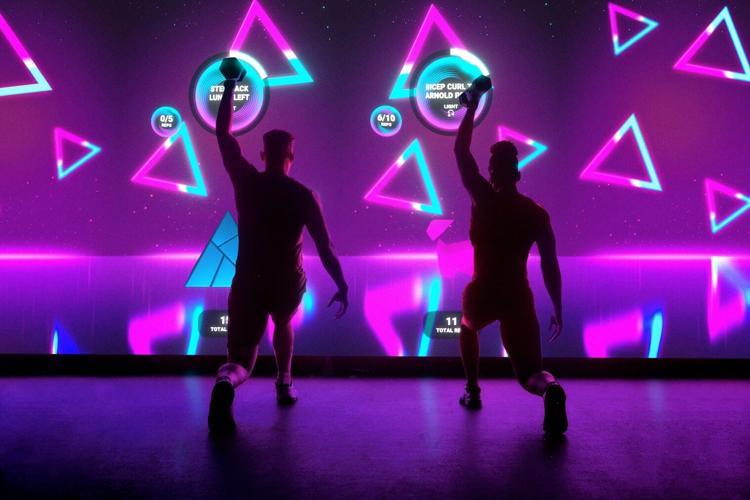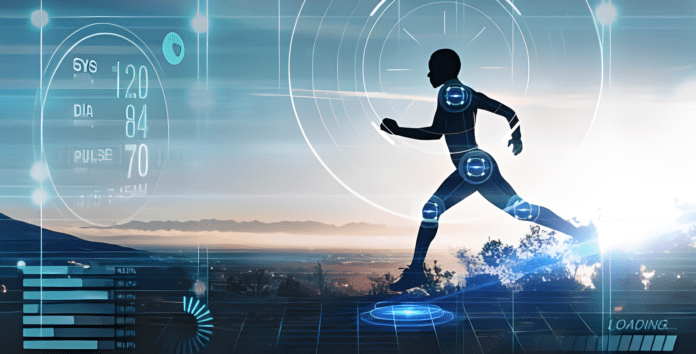As many of us attempt to lose weight in the New Year, is it possible for artificial intelligence (AI) fitness instructors to take the position of human ones?
“I’d never set foot in a gym before,” says Varun Bhanot, CEO of the AI fitness software company Magic AI. “I found it too intimidating. It’s also very expensive, and inconvenient when you’ve got to travel to get there.”

A few years ago, when Mr. Bhanot was informed he needed to reduce his weight or face health problems, he underwent a significant life transformation with the assistance of a human personal trainer.
However, Mr. Bhanot realized that individuals could have easier access to the guidance of an AI fitness chatbot while in the comfort of their own homes, which would encourage establishing a healthy lifestyle. So he established Magic AI in 2021. Its flagship device, the Magic Mirror, combines a touch screen with a video of a humanoid AI teacher.

“When you log in you put in all of your biometric information, and then the AI generates a personalized program, just like a human personal trainer,” according to Mr. Bhanot.
The AI trainer communicates with you through loudspeakers and provides immediate feedback and suggestions by tracking your workout movements with cameras. As you advance, it generates additional exercise routines.
It follows a rapid rise in artificial intelligence (AI) usage in the health and fitness industries around the world. According to one report, the market was valued at $7.8 billion (£6.1 billion) in 2022 and is projected to increase to $35.6 billion by 2030.
An increasing number of fitness applications, such as Aaptiv, FitnessAI, Fitbod, Freeletics, VI Trainer, and Whoop, make use of artificial intelligence. The widely-used AI chatbot ChatGPT reportedly has some users who simply ask it to come up with exercise routines.
The increase in the number of fitness applications powered by artificial intelligence indicates that some individuals are more at ease interacting with machines than with humans. While the mere convenience of carrying a fitness coach inside their pocket may be sufficient for others.
However, is it truly possible for AI to imitate the motivation that human interaction engenders? Well, physiotherapist and Pilates instructor Esther Fox does not agree.

“People want to speak to somebody they know and trust,” according to her. “AI is not something I would particularly want to use.”
Ms. Fox states that achieving results is possible through the establishment of connections with individuals. “When people feel heard and understood, they listen to you – and they do what you want,” according to her. “It is a very human experience.”
“There’s a lot of emotional intelligence that goes into health and fitness that you just can’t replace with AI.”
Magic AI fitness mirrors, on the other hand, feature Desiree Henry, a British sprinter and bronze medalist at the Olympics, as one of the AI trainers’ voices and bodies. She is on the AI corner.”Even if you’re doing a home workout alone, it feels like someone is supporting you through the session,” according to her.

Mr. Bhanot explains that the intention is to supplement gyms rather than supplant them: “like Netflix and cinema, food delivery and restaurants. AI offers another option for people who value flexibility and convenience”.
While the majority of AI fitness applications are intended for isolated use, the first gym where individuals can exercise together while being trained by AI coaches has now opened.
LED screens border the walls of the dimly lit studio area of Lumin Fitness in Dallas, Texas, from which AI personal trainers direct up to fourteen gym-goers simultaneously through high-intensity interval training or individualized workouts.

Every individual is assigned a station with a screen covering sensors that monitor their movements as well as the gym’s specialized apparatus, such as skipping ropes, medicine balls, and dumbbells. They are then provided with verbal feedback via headphones from the AI.
“Sensors in the studio can watch every member of the class, monitoring form, and giving feedback on every movement,” explains Brandon Bean, co-founder and CEO of Lumin Fitness.
A human trainer, however, is present in the room. “We’re not trying to replace the talent of the trainers,” claims Bean. “We’re giving them tools to provide a better experience.”
“The coach is so important in building a community. Those in-person high-fives, the smiles. There are certain things you can’t replicate.”
Physiotherapist Lucy McDonald asserts, “If AI is programmed properly, then I can see a huge amount of potential for it to help people to progress their exercises”.
However, she warns that AI may not constantly make accurate judgments; therefore, individuals should consult a human expert before endangering themselves with overtraining or injury.

Mr. Bean contends that the development of AI fitness applications will continue. “From an industry perspective, we’re very early on,” according to him. “But one of the brilliant features of AI is its ability to learn. It’s not perfect now, but as it learns over time, AI fitness will get better and better.”




